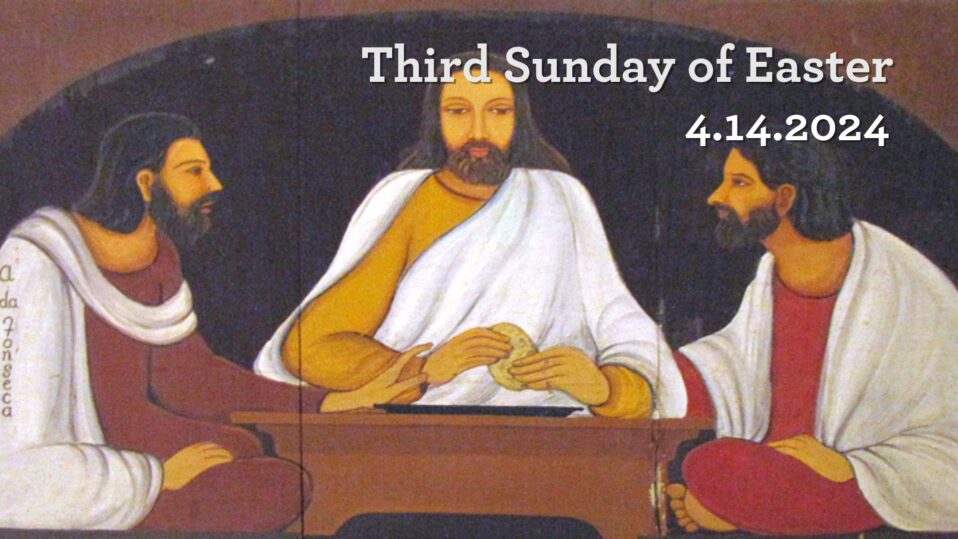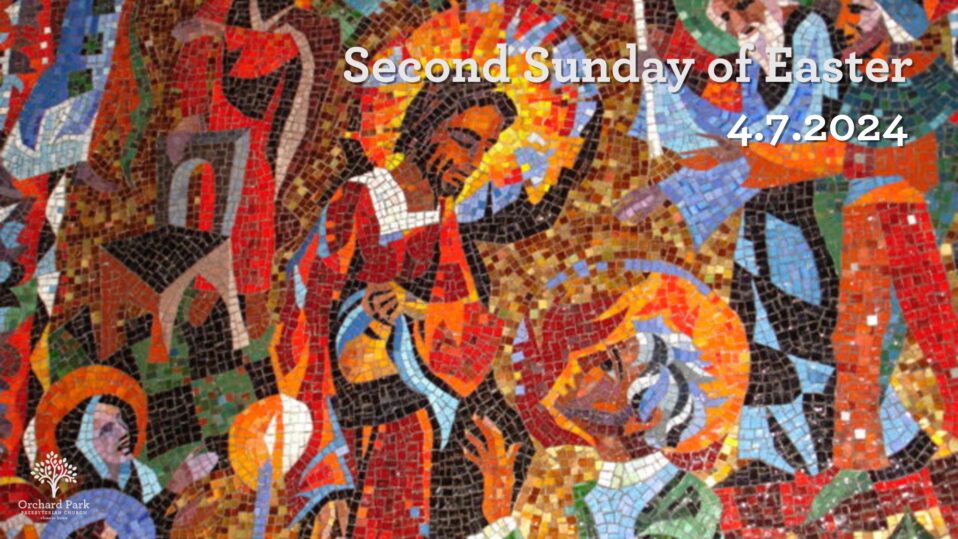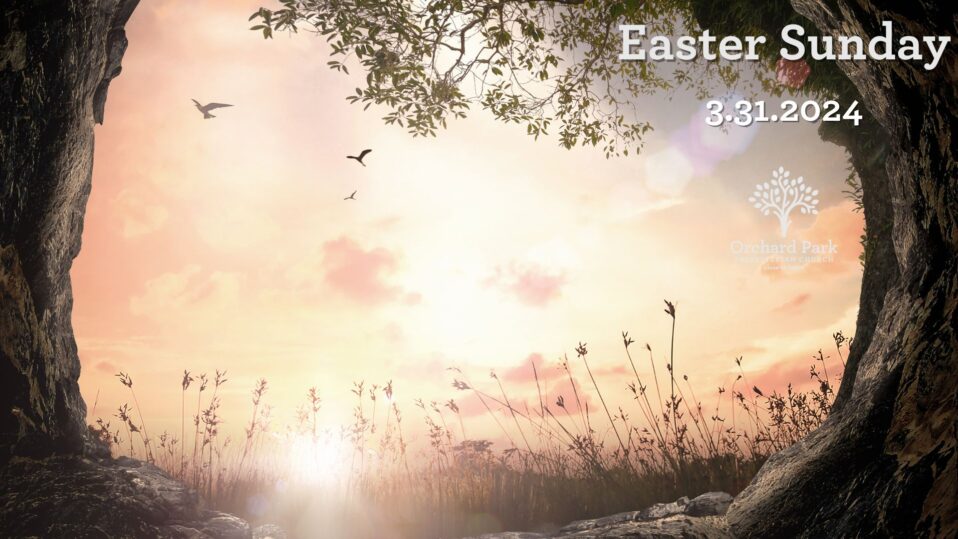This complicated passage of scripture seems to raise more questions than it can answer, but perhaps this is as it should be. The mark of a good teacher or a good story is the ability to make us think. Let’s begin with the story itself.
It comes in four scenes. In scene one, we have a very wealthy man and a manager who is very wealthy too, because he has the use of everything the rich man has. Quickly we move to scene two. In scene two the rich man hears that the manager is squandering the property and straightaway fires him. We may be alarmed that this is a world in which the manager can simply be sacked on the basis of unsubstantiated allegations. But there is a moment of grace: before he clears out his office, gets a sympathetic pat on the back from his staff and takes home the family photos, the manager gets the chance to visit all the rich man’s clients to settle up their accounts. And so to scene three, in which the manager has a bright idea. Rather than feeling sorry for himself or hiring an attorney, he sets about writing off the debts of the rich man’s major creditors. It’s too late to make money, but it’s not too late to build social capital. He starts making friends, people who will be pleased to see him even when he’s out of a job. In scene four, the rich man comes face to face with the manager. And the rich man says, ‘Good for you, you were in a mighty big hole and you got out of it simply by being generous. You realized that generosity is the best investment. You’re better at this than I am.’
A shyster is the hero of the story. We are o.k. with that on Netflix, but not in the Bible and definitely not from Jesus.
Jesus couldn’t be serious in telling this story, could he? Surely he must have delivered this parable with a wink. In the original, surely Jesus ended with, “Just kidding! We all know that stealing is a no-no in the Ten Commandments. Boys and girls, Martha Stewart could tell you, model, yourself on this story and the Feds will nail you! It’s a joke!”
Why in the world would Jesus use a crook as a good example? – Surely this story isn’t for us? It’s for the people still in bed or enjoying avocado toast at Patachou. They are the children of this age, we are more children of the light. -right? I mean we are here, and they are there…so this parable does nothing for us.
Maybe it would be helpful to understand something about the Gospel of Luke.
Luke is all about turning society upside down. Luke is all about the poor being lifted up and the rich and powerful being taken down. Consider Mary’s Magnificat, the poor Shepherds being the first to see the Christ Child, the Beatitudes, blessed are the poor for they shall inherit the earth.- In Luke, reversals of status are at the heart of what happens when Jesus and the kingdom of God appear. The proud are “scattered” The powerful are brought down and the lowly lifted; the hungry are filled and the rich are sent away empty.
Knowing this backdrop, why would the master commend the dishonest steward? What is commendable about it? I think to see what’s commendable you have to understand classism in antiquity. In order for the steward to be redeemed he had to seek hospitality and help from people who were at a lower status than he. He had to break out of the social status, recognize people as people and not as transactions, and this practice takes courage, humility and a new way of thinking. People in lower classes weren’t acknowledged as equal by people in higher classes.
And so the fact that the steward formed a relationship with people in a lower class than he, while for his own benefit, was also commendable because he put them on the same playing field. He included them in the social fabric that worked toward a solution.
This scripture passage is for people who would like to be children of light aka disciples, but identify more as people of the age. It’s for people who are successful as society defines success, people who have gained wealth, have status, have figured out how to play the game and gotten ahead. How do children of the age find redemption? Do not think of yourself as higher than those with fewer resources than you. And what does it mean to be a good steward of your resources?
I think the church’s greatest struggle has been wanting to be children of the light, but not wanting to forgo being children of the age. The church has always desired to worship God but has always wanted to maintain its status.
Maybe that’s our greatest challenge too, which is why Jesus asks the question, who are going to serve? Because you can’t serve both God and Mannah.. Mission and service have been made comfortable and designed for the children of the age not necessarily for the children of the light. We conform mission to fit society, we do not try to change society to address the mission. Here’s a brief history of mission in the West..
The early church in 4th century Cappadocia was noted for caring for the poor via feeding programs, and obtained “money, property and other goods from the rich to distribute to the poor” (Brandsen & Vliem, 2008, p.62).
Monasteries in the middle Ages provided employment (Garland, 1992). There was also the development of shelters, almshouses, hospices, and leprosaria during this period (Brodman, 2009).
The great revival movements of the 19th century lead to a “dynamic Christian faith that would change society as a whole” (Poe, 2008, p. 111). Many social activities developed as a result of this revival movement. This included the establishment of orphanages by George Mueller, and the development of the Salvation Army, YMCA, YWCA, and Volunteers of America. The Methodist Settlement Movement in the mid-19th century “staffed outreach programs to the most marginalized inhabitants of the inner cities” (Kreutziger, 2008, p. 81). Around the turn of the 20th century the Baptist Training School Settlement (Southern Baptists) in Louisville, Kentucky, and the Madonna Center Settlement House (Catholic) in Chicago provided services and aid to the immigrant and poor communities of the respective cities (Scales & Kelly, 2012).
The development of the social gospel movement in late 19th and early 20th centuries created a division in the church as more progressive churches focused on social change and increased government involvement, while the more conservative elements emphasizes evangelism and church growth.
Over and over again we have been trying to get it right, knowing that we want to serve faithfully, but we also don’t want to lose our security, our social status, or get too uncomfortable. Because as much as we want to be children of the light, we are all more children of this age.
Despite our earnest efforts and preening pretension, most of us are, more than we like to admit, “children of this age.” We want to move toward the light, but then there are these shady urges, these secret habits, the things we think and do when nobody’s looking. Some of the things we did last night after the party don’t look so good in the light of Sunday in church. We pledge our allegiance to the Kingdom of Heaven, but the Kingdoms of this World own us. Look at our master card receipts.
Jesus isn’t going to wait around to save people when they are perfect. Jesus doesn’t wait for you to be a better person to love you. When Jesus died on the cross he loved the thieves on the right and the left of him, knowing full well that we were them.
You got to love a Savior who doesn’t mind getting mixed up with some of us low “children of this age,” even to allow us to nail him to a cross, so determined was he to love us, as we are, rather than as who we wish we were.
Biblical commentator Helen Debevoise puts it this way:
Somewhere in the middle of our journey we stopped living for Christ. We stopped believing that Jesus died and was resurrected and that life was made new. Somewhere along the way it became easy to serve all those pressing demands: of people, of schedule, of money. Somewhere along the way, the vision for God’s call became cloudy and muddled. We stopped hearing God’s voice and joined the crazy survivor-takes-all mentality. Somewhere along the way, the challenges seemed so much bigger than the answers. So we huddled in an effort to save whatever was left and forgot about living for something greater. (Helen Debevoise, Feasting on the Word: Preaching the Revised Common Lectionary)
James Joyce’s story, “Grace,” opens with a drunk businessman falling down stairs in a bar. He is a drunk who has, due to drink, neglected his poor wife and family. After his near fatal, drunken plunge, a group of his bar friends scheme to reform him by getting him to a Jesuit, Father Purdon who has a reputation for tough sermons. That ought to sober him up and bring him to his senses! To their dismay, that night the preacher preaches on this parable: “For the children of this age are wiser…than the children of light….” Joyce says, “Father Purdon developed the text with resonant assurance….one of the most difficult texts in all the Scriptures…. It was a text which might seem to the casual observer at variance with the lofty morality elsewhere preached by Jesus Christ. But, [the preacher] told his hearers, the text seemed to him specially adapted for the guidance of those whose lot it was to lead the life of the world…it was a text for business men and professional men. Jesus Christ with his divine understanding of every cranny of our human nature, understood that not all were called to the religious life.”1 And Joyce names the story, “Grace.”
I think sometimes we like to think that we can hide the world from Jesus and pretend that we are more in the light than of this age, but Jesus is no fool.
My college John Vest asks the question
Yet every time I fill up my gas tank to enjoy the luxury of driving my car around town, I wonder if this is the best use of my resources. And every time I eat an expensive dinner at a nice downtown restaurant, I think about how the money I just spent on one meal would feed a family of my friends in Cuba for several months. How much is enough? Where do I drathe line for myself and my family?
I don’t know enough about economics to know whether or not wealth really is a zero-sum game. I suspect that it is not. Yet I wonder if my accumulation of wealth necessarily comes at the expense of someone else or, even worse, the impoverishment of someone else. Do I contribute to a national or global economic system that oppresses and exploits?
Next month the leaders of our church will ask us to think about stewardship and giving to this church. What is a truly sacrificial pledge? Does God really expect a 10 percent tithe? Is 5 percent good enough? How about 1? Or should I even measure my giving in percentage points? How do I balance my giving to the church and my giving to other institutions that work toward the common good? And when I’m handed the plate during the offering, what should I put in there?
This is a lot to think about. And as I mentioned at the outset of this sermon, our scripture this morning raises more questions than it answers. Again, maybe this is as it should be. I think we need these questions much more than we need simple, easy answers. Given the 3,000 years of sacred history in which God’s people have wrestled with these tensions without arriving at a clear resolution, I don’t think answers are necessarily coming soon.
Yet we must ask the questions. We must let them confront us every day. We must be intentional about every move we make, wondering if we are living out the gospel or ignoring it for our own desires.
Will serve God or Mannah?
God only knows.
Amen.



